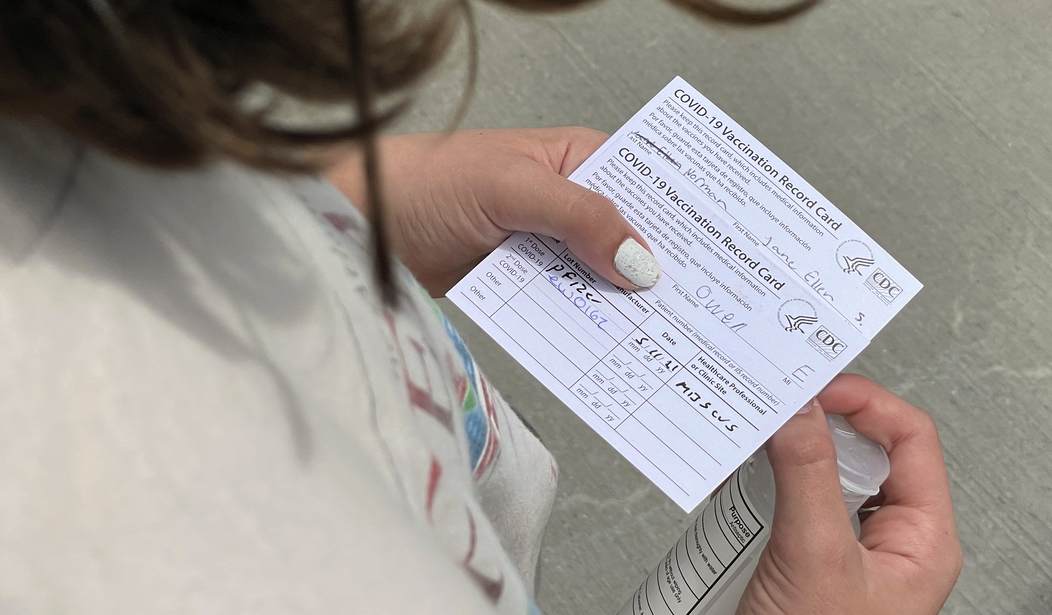And they wonder why some on the right question the authenticity of elections?
More and more public venues — stadiums, ballparks, arenas, auditoriums — are requiring proof of vaccination before entering to be seated. Even bars and restaurants in some places — big cities like New York, Los Angeles, and San Francisco — require proof of vaccination to enter.
That “proof” is in the form of a CDC-approved vaccination card. If you’ve been vaccinated, you probably got one from your public health agency overseeing the vaccination program.
But don’t worry. If you didn’t get one after being vaccinated, or if you lost it, or if you never got vaccinated, you can still go to the Super Bowl on Sunday or other indoor and outdoor events that require patrons to have proof of vaccination. All you have to do is visit the CDC website where you can find a PDF copy of a vaccination card for download and printing. (Note: PJ Media will not link to the site of the blank card).
“CDC has consistently advised states not to post the vaccine card template publicly,” CDC spokesperson Kate Grusich told NBC News last April.
Despite multiple inquiries to the agency about the site over the past two weeks, it has not responded with explanation or comment. As of Monday, the CDC’s website continues to offer a high-quality PDF copy of the document on its website — complete with a notice that the file is not copyrighted and is free for public use. The document has no watermark to deter people from simply printing it out and filling in false information.
The Biden administration decided very early on that there would be no national database of those who’ve been vaccinated, and no “vaccine passport” to segregate those who received a jab and those who didn’t. But the use of paper cards has proven to be a disaster.
A Grid investigation last month found the U.S. government’s reliance on the crude paper cards as official proof of Americans’ covid vaccination status has allowed a global marketplace of fraud to flourish. Thousands of online sellers offer fake vaccine credentials on major social media platforms, commonly using cryptocurrency and private online conversations to complete sales.
Twitter and Facebook have removed accounts that were openly selling the fake cards. But why bother buying one if you can make your own with limited computer skills?
“I think it’s silly that the CDC advises states not to put high-quality PDFs on their websites, when the CDC itself has one that’s easily accessible and downloadable,” said Amesh Adalja, an infectious disease physician and senior scholar at the Johns Hopkins University Center for Health Security. “It couldn’t be expected to be an impactful recommendation to the states if the CDC is an easy source to download a document to make a fraudulent card from.”
In fact, the fraud is so pervasive and widespread that using a vaccine card as proof of vaccination is ludicrous.
Law enforcement continues to make cases against fake vaccine card peddlers. The owner of a New York pediatric center and two of her employees were charged last month with felonies after an undercover operation where a detective was sold a fake vaccine card. In a raid of the facility by state and federal officials, over $800,000 in cash was found along with a ledger showing over $1.5 million in revenue from the illicit business. The three are also accused of entering the false information into the New York State Immunization Information System database.
With the vaccine card identification process in shambles, why bother? What good does it do if one in three or one in four people who enter a venue are unvaccinated and potential spreaders of the virus?
The answer is, it does about as much good as “election integrity” measures being advanced by the Democrats.










